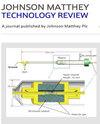新能源汽车政策研究的知识结构:映射分析与未来研究议程
IF 2
4区 化学
Q4 CHEMISTRY, PHYSICAL
引用次数: 0
摘要
在全球范围内,交通运输占能源相关二氧化碳排放量的23%,其中80%来自公路运输。要实现气候变化目标,必须进行重大变革,包括该行业的广泛电气化。为了解新能源汽车政策研究,本研究通过对Web of Science Core Collection数据库中355篇论文的研究,探讨新能源汽车政策研究的现状、知识基础和研究前沿。利用知识域技术和文献计量学技术,绘制了新能源汽车政策研究趋势和知识结构发展趋势。知识库分析表明:(1)新能源汽车政策形成与评价;(2)政策激励与消费者采用;(3)消费者对新能源汽车采用的偏好都是新能源汽车政策研究与制定的重要知识基础。新能源汽车政策的效率、替代燃料汽车(afv)的成本效益、消费者对新能源汽车采用的偏好、氢能源和燃料电池汽车、气候政策和二氧化碳排放是新能源汽车政策研究的五大主线。中国是新能源政策研究最活跃的国家,清华大学的论文数量最多。《能源政策》、《可持续发展》和《清洁生产学报》是新能源汽车政策研究的核心期刊,能源与燃料、环境科学是新能源汽车政策研究的核心学科。这一分析的发现有助于决策者和研究人员浏览有关新能源汽车的文献,为现有工作提供清晰的地图,确定差距并为未来的研究推荐有希望的途径。本文章由计算机程序翻译,如有差异,请以英文原文为准。
Knowledge Structure of New Energy Vehicle Policy Research: Mapping Analysis and Future Research Agenda
Globally, transport is responsible for 23% of energy-related carbon dioxide emissions, and 80% of these emissions are attributable to road transport. Significant transformations - including extensive electrification of the sector - are necessary to achieve the climate change goals. To understand the new energy vehicle (NEV) policy research, we explore the status, knowledge base, and research frontiers of NEV policy research by studying 355 papers collected from the Web of Science Core Collection database. We map NEV policy research trends and knowledge structure development using knowledge domain technology and bibliometric techniques. The knowledge base analysis shows that (1) NEV policy formation and evaluation, (2) policy incentives and consumer adoption, and (3) consumer preferences towards NEV adoption are all essential knowledge foundations in NEV policy research and development. The efficiency of NEV policy, cost-effectiveness of alternative fuel vehicles (AFVs), consumer preferences for NEV adoption, hydrogen energy and fuel cell vehicles, climate policy and CO2 emissions are five main lines of research in NEV policy studies. With the highest publications from Tsinghua University, China is the most active country in NEV policy research. Energy Policy, Sustainability, and Journal of Cleaner Production are the core journals, and energy and fuels and environmental sciences are the core disciplines of NEV policy research. The findings of this analysis help policymakers and researchers to navigate the literature on NEV, provide a clear map of existing works, identify the gaps and recommend promising avenues for future studies.
求助全文
通过发布文献求助,成功后即可免费获取论文全文。
去求助
来源期刊

Johnson Matthey Technology Review
CHEMISTRY, PHYSICAL-
CiteScore
4.30
自引率
4.30%
发文量
48
审稿时长
12 weeks
期刊介绍:
Johnson Matthey Technology Review publishes articles, reviews and short reports on science enabling cleaner air, good health and efficient use of natural resources. Areas of application and fundamental science will be considered in the fields of:Advanced materials[...]Catalysis[...][...]Characterisation[...]Electrochemistry[...]Emissions control[...]Fine and speciality chemicals[...]Historical[...]Industrial processes[...]Materials and metallurgy[...]Modelling[...]PGM and specialist metallurgy[...]Pharmaceutical and medical science[...]Surface chemistry and coatings[...]Sustainable technologies.
 求助内容:
求助内容: 应助结果提醒方式:
应助结果提醒方式:


